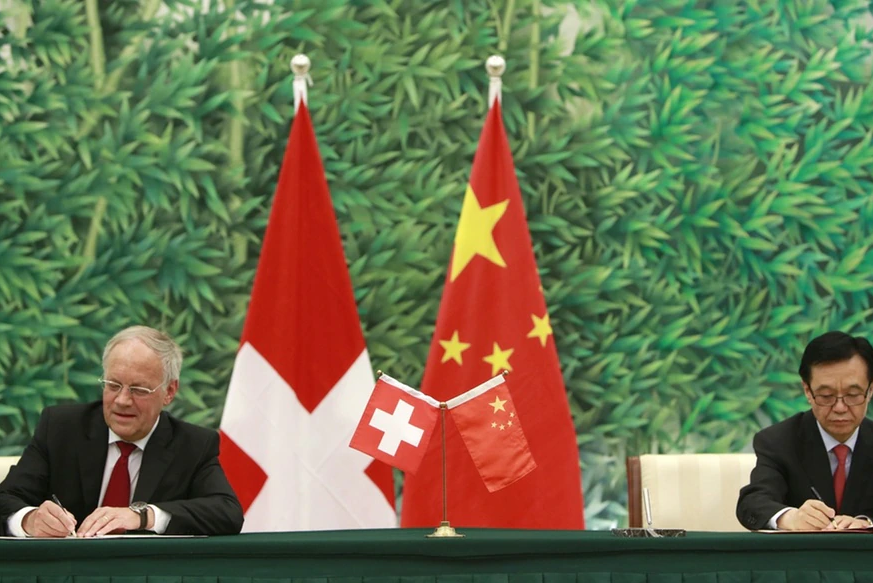Switzerland wants to update its 2014 free trade agreement with China, but Beijing refuses to talk, owing to criticism of its human rights record, report the NZZ am Sonntag and SonntagsBlick newspapers. Bern wants to reduce customs duties for more Swiss products and introduce sustainability aspects into the agreement, but Beijing has been refusing to talk since 2018, writes the NZZ am Sonntag. The State Secretariat for Economic Affairs (SECO) confirmed to the paper that Beijing has refused to talk even about a joint list of topics. This is bad news for Swiss industry, as China is Switzerland’s third largest market for its exports after Germany and the US, it writes. Experts say the Chinese stalling is a response to growing criticism of its human rights record in
Topics:
Swissinfo considers the following as important: 3.) Swissinfo Business and Economy, 3) Swiss Markets and News, Featured, Latest News, newsletter
This could be interesting, too:
Nachrichten Ticker - www.finanzen.ch writes Die Performance der Kryptowährungen in KW 9: Das hat sich bei Bitcoin, Ether & Co. getan
Nachrichten Ticker - www.finanzen.ch writes Wer verbirgt sich hinter der Ethereum-Technologie?
Martin Hartmann writes Eine Analyse nach den Lehren von Milton Friedman
Marc Chandler writes March 2025 Monthly
 Switzerland wants to update its 2014 free trade agreement with China, but Beijing refuses to talk, owing to criticism of its human rights record, report the NZZ am Sonntag and SonntagsBlick newspapers.
Switzerland wants to update its 2014 free trade agreement with China, but Beijing refuses to talk, owing to criticism of its human rights record, report the NZZ am Sonntag and SonntagsBlick newspapers.
Bern wants to reduce customs duties for more Swiss products and introduce sustainability aspects into the agreement, but Beijing has been refusing to talk since 2018, writes the NZZ am Sonntag. The State Secretariat for Economic Affairs (SECO) confirmed to the paper that Beijing has refused to talk even about a joint list of topics.
This is bad news for Swiss industry, as China is Switzerland’s third largest market for its exports after Germany and the US, it writes.
Experts say the Chinese stalling is a response to growing criticism of its human rights record in Switzerland. “The blame lies with the current political discussion in Switzerland, which is not well perceived in parts of the Chinese state apparatus,” Jean-Philippe Kohl, deputy director of industry association Swissmem, told the paper.
NZZ am Sonntag says Kohl is referring to a parliamentary initiative that denounces the alleged forced labour of Uyghurs in northwest China and a growing number of voices in Swiss politics critical of China. The pressure to reduce dependence on China is now also growing from civil society, says China expert Ralph Weber. He thinks Switzerland’s “special path” with China is clearly at a dead end.
Tags: Featured,Latest news,newsletter








